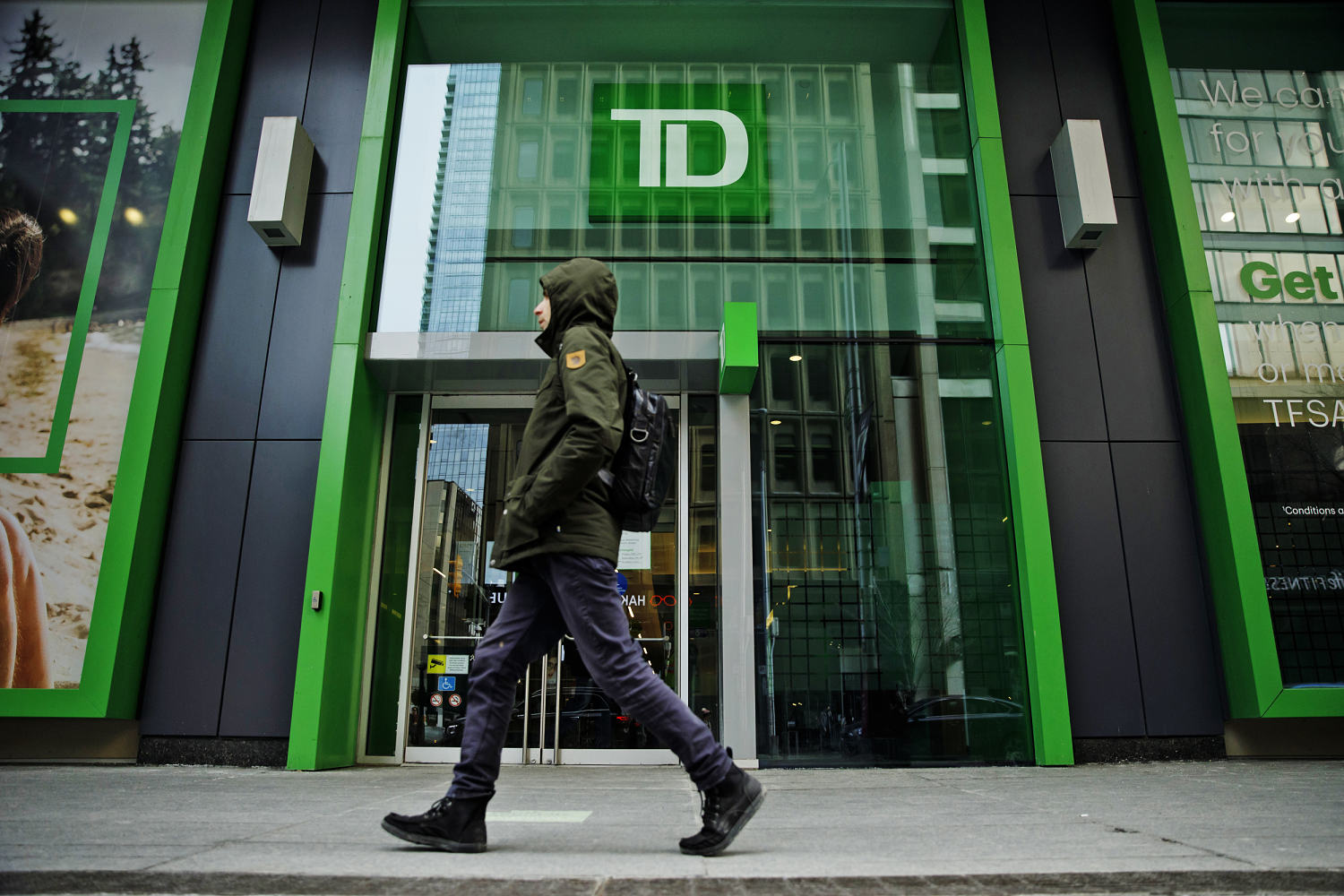
TD Bank pleaded guilty Thursday in a criminal money laundering case and agreed to pay a whopping $3 billion in fines and other penalties to the Department of Justice and federal financial regulators for failing to monitor money laundering by drug cartels.
As part of the deal, TD Bank, whose U.S. unit is the 10th-largest American bank by assets, is accepting limits on its growth, the Office of the Comptroller of the Currency announced Thursday.
Attorney General Merrick Garland said a monitor will oversee the bank’s compliance with money-laundering prevention practices for three years as part of a settlement.
Garland said over a six-year period that ended last October, TD Bank admittedly failed to monitor a stunning $18.3 trillion in customer activity, which allowed three money laundering networks to transfer more than $670 million through accounts at the bank.
At least one of those schemes involved five bank employees, Garland said.
“At various times, high-level executives, including the person who became the bank’s chief anti-money laundering officer, knew there were serious problems with the bank’s anti-money laundering program, but the bank failed to correct them,” the attorney general said.
The Wall Street Journal reported in May that the DOJ was investigating how Chinese organized crime groups and drug traffickers used TD Bank to launder money derived from the sale of the deadly opiate fentanyl in the United States.
“TD Bank’s persistent prioritization of growth over controls allowed its employees to break the law and facilitate the laundering of hundreds of millions of dollars. The bank’s blatant risk management failures attracted illicit actors and are egregious and unacceptable,” said Acting Comptroller of the Currency Michael Hsu in a statement.
The restrictions on TD Bank’s growth are similar to those imposed by the Federal Reserve on Wells Fargo in 2018 over what the Fed called “widespread consumer abuses” at that bank.
The Federal Reserve Board on Thursday fined TD Bank more than $124 million for violations related to anti-money laundering laws, saying the bank failed to “conduct adequate risk management and oversight of its retail banking operations in the United States, resulting in a U.S. subsidiary being used to launder hundreds of millions of dollars in illicit proceeds.”
Sen. Elizabeth Warren, D-Mass., in a statement to CNBC blasted Thursday’s deal.
“Big banks treat government fines as the cost of doing business,” Warren said.
“This settlement lets bad bank executives off the hook for allowing TD Bank to be used as a criminal slush fund. The Department of Justice and the Office of the Comptroller of the Currency need to do better in enforcing our anti-money laundering laws,” Warren said.
TD Bank shares were down more than 3% midday Thursday.
A spokeswoman for Toronto-based TD Bank, which is Canada’s second-largest bank, had no immediate comment.
In September, TD Bank was ordered to pay nearly $28 million by the Consumer Financial Protection Bureau for repeatedly furnishing consumer reporting agencies with information about customers that contained numerous errors, and waiting more than a year to fix those mistakes despite knowing about them.
This is a developing story. Check back for updates.








